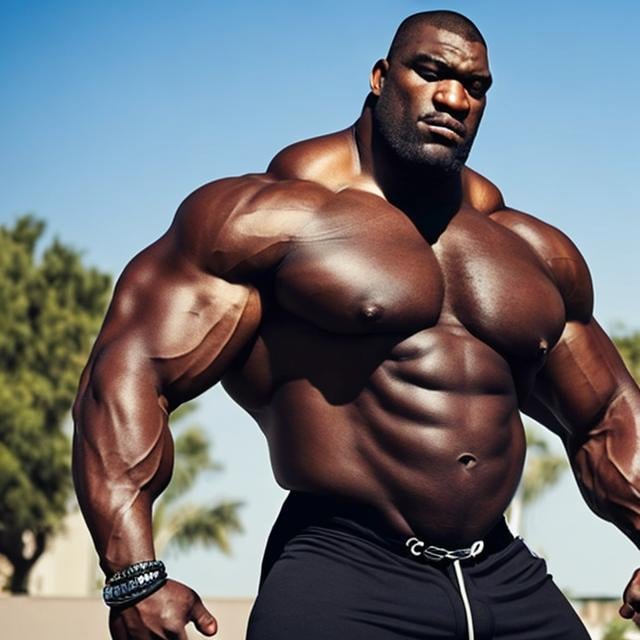The relationship between Big Machine Records and Taylor Swift represents, in a way, one of the most talked-about sagas in recent music history. It’s a story about a hugely popular artist and the ownership of her early works. Many people, you know, have followed this situation closely, wondering about what it all means for music creators everywhere.
This situation, quite frankly, brought a very large topic into the open: who really controls an artist's recorded music. For years, the general public might not have given much thought to the behind-the-scenes dealings of record labels and musicians. But this particular event, it seems, changed that for many.
It shows a big shift in how fans think about supporting their favorite artists. The whole situation with big machine records taylor swift truly became a focal point for discussions about artistic control and the value of an artist's creative output. It’s a big deal, really, for the industry as a whole.
Table of Contents
- Who is Taylor Swift?
- The Story of Big Machine Records and Taylor Swift
- What This Means for Music Creators and Fans
- Frequently Asked Questions About Big Machine Records Taylor Swift
- Looking Ahead: The Big Future of Music Rights
Who is Taylor Swift?
Taylor Swift is a songwriter and performer recognized around the globe. She started her music path at a young age, signing with Big Machine Records when she was just a teenager. Her early work, you know, really helped shape the sound of country music for a new generation.
She became known for writing songs that told stories, often from her own life experiences. This approach, honestly, helped her connect with a very large audience. Her music crossed over from country to pop, making her a household name in many places.
Her career has seen her release many popular albums, win numerous awards, and build a massive following of supporters. She is, quite simply, one of the most successful music artists of her time. Her influence, it seems, extends far beyond just making catchy tunes.
Personal Details & Bio Data
| Full Name | Taylor Alison Swift |
| Date of Birth | December 13, 1989 |
| Place of Birth | West Reading, Pennsylvania, USA |
| Occupation | Singer, Songwriter, Producer, Director |
| Genre | Pop, Country, Alternative |
| Years Active | 2004–present |
The Story of Big Machine Records and Taylor Swift
The Start of Something Big
Taylor Swift signed her first record deal with Big Machine Records in 2005. She was a very young artist with big dreams and a lot of talent. This partnership, basically, launched her into the music scene.
Over the next decade, she released six studio albums under this label. These albums, like "Fearless" and "1989," became incredibly popular, selling a huge number of copies. They helped her become a truly big name in music, you know, reaching a global audience.
The success she achieved was quite remarkable, setting her up as a major force in the industry. Her early work with Big Machine Records laid the groundwork for a career that would become, honestly, one of the most impactful in recent memory.
The Master Recordings: A Big Point of Contention
At the core of the big machine records taylor swift story is the topic of master recordings. These are the original sound files of a song, the very first versions. Owning the masters means controlling how the music is used, licensed, and sold, which is a very big deal for any artist.
Taylor Swift wanted to own her masters, particularly as her contract with Big Machine Records was nearing its end. She had, in a way, tried to buy them. However, a deal could not be reached that suited her wishes, which was a pretty significant hurdle.
This disagreement became a truly big point of contention between the artist and the record company. It showed a fundamental difference in what each side believed was fair for her work. The ownership of these recordings, it seems, was a matter of great importance to her.
The Sale and the Big Reaction
In 2019, Big Machine Records, along with all of Taylor Swift's early master recordings, was sold. The buyer was Scooter Braun's Ithaca Holdings. This news, honestly, caused a very big stir.
Taylor Swift expressed strong feelings about the sale. She stated publicly that she was upset by the change of ownership, especially since she had no control over who would own her work. Her reaction, it turns out, was quite strong and very public.
Fans and many people in the music business reacted with a lot of support for Taylor. This event sparked a huge conversation about artist rights and fair dealings within the industry. It was, arguably, a moment that truly highlighted the power dynamics at play.
You can find more details about the acquisition and the initial reactions here, if you want to know more about the early days of this public discussion. This event, you know, set the stage for much that followed.
The Big Plan: Re-recording Her Music
Faced with this situation, Taylor Swift announced a very bold plan: she would re-record her first six albums. This move was a way for her to gain ownership of new versions of her songs. It was a big undertaking, to be honest, but one she felt was necessary.
By creating "Taylor's Version" of each album, she could offer fans new recordings that she fully controlled. This allowed her to bypass the original masters she did not own. It was a clever strategy, and many people, you know, saw it as a powerful statement.
The re-recordings have been a huge success, breaking sales records and getting a lot of attention. This process has shown the very big power an artist has when they have the backing of their fans. It has, in a way, rewritten some of the rules for the music business today.
What This Means for Music Creators and Fans
Artist Ownership: A Big Topic
The big machine records taylor swift dispute brought the topic of artist ownership to the forefront. It made many artists think more deeply about their contracts and what they truly own. This is, apparently, a really important conversation for the future of music.
New artists, especially, can learn a lot from this situation. It highlights the value of understanding rights and negotiating for control over one's creative work from the start. It's a big lesson, so to speak, for anyone starting in the music world.
The discussion around this topic continues to grow, with more artists speaking up about their own experiences. It seems this event has had a pretty significant effect on how people view artist agreements. This push for artists to have more control, basically, feels like a big step forward.
The Fan's Big Role
Fans played a very big role in supporting Taylor Swift throughout this whole process. They actively chose to listen to "Taylor's Version" of her songs, showing their loyalty. This collective action, you know, sent a clear message.
Their support showed the immense power of a dedicated fan base. When fans rally behind an artist, it can have a truly big impact on business decisions and industry practices. It's a testament, in a way, to the connection artists build with their listeners.
This situation has, in short, changed how many fans think about where their money goes when they stream or buy music. It has made them more aware of the business side of the industry. Their support for Taylor's re-recordings was, honestly, a very big show of solidarity.
Learn more about artist rights on our site, and link to this page about music ownership.
Frequently Asked Questions About Big Machine Records Taylor Swift
Why did Taylor Swift re-record her albums?
Taylor Swift re-recorded her albums to gain ownership of her music. Her original master recordings were sold to a company she did not approve of. By making new versions, she could control how her early songs were used. This was, in a way, her path to owning her creative output.
Who owns Taylor Swift's masters now?
The original master recordings of Taylor Swift's first six albums are owned by Shamrock Holdings, which acquired them from Scooter Braun's Ithaca Holdings. However, Taylor Swift now owns the master recordings of her re-recorded "Taylor's Version" albums. So, it's a bit of a split situation, you know.
What is the significance of "Taylor's Version" for artists?
"Taylor's Version" shows artists they have a path to reclaim control over their work, even if they don't own their original masters. It highlights the importance of contract details and future ownership. This move has, in some respects, given other artists a very big example to follow.
Looking Ahead: The Big Future of Music Rights
The big machine records taylor swift story continues to influence the music world. It has, basically, made many people think differently about how music is made and owned. The conversation about artist rights and control is now, honestly, a very big part of industry talks.
We might see more artists try to gain ownership of their work earlier in their careers. Record deals could change to reflect this new focus on artist control. This situation, you know, has certainly left a very big mark on the business side of music.
The lasting impact of this saga is likely to be quite significant. It has shown the power of an artist's voice and the importance of fan support. The future of music rights, it seems, will be shaped by these very big conversations and actions.



Detail Author:
- Name : Isadore Weimann Jr.
- Username : bmcclure
- Email : qgutmann@hotmail.com
- Birthdate : 1992-09-17
- Address : 49246 Marcelina Lodge Eldashire, DC 54601
- Phone : 256-849-5176
- Company : Schumm-Doyle
- Job : Electrical Drafter
- Bio : Minus quidem id eum animi. Eum et sit consequatur sit omnis ea. Voluptates corporis vero quos. Aut suscipit ullam eum ullam nihil nesciunt maxime.
Socials
linkedin:
- url : https://linkedin.com/in/ortizd
- username : ortizd
- bio : Ut rerum officiis cupiditate facilis vitae et.
- followers : 3617
- following : 1262
instagram:
- url : https://instagram.com/ortizd
- username : ortizd
- bio : Vitae excepturi vitae quas. Similique quibusdam provident est deserunt delectus ut commodi.
- followers : 433
- following : 1288
facebook:
- url : https://facebook.com/ortizd
- username : ortizd
- bio : Ea qui enim illum. Ex sed quas nemo ut.
- followers : 699
- following : 1527